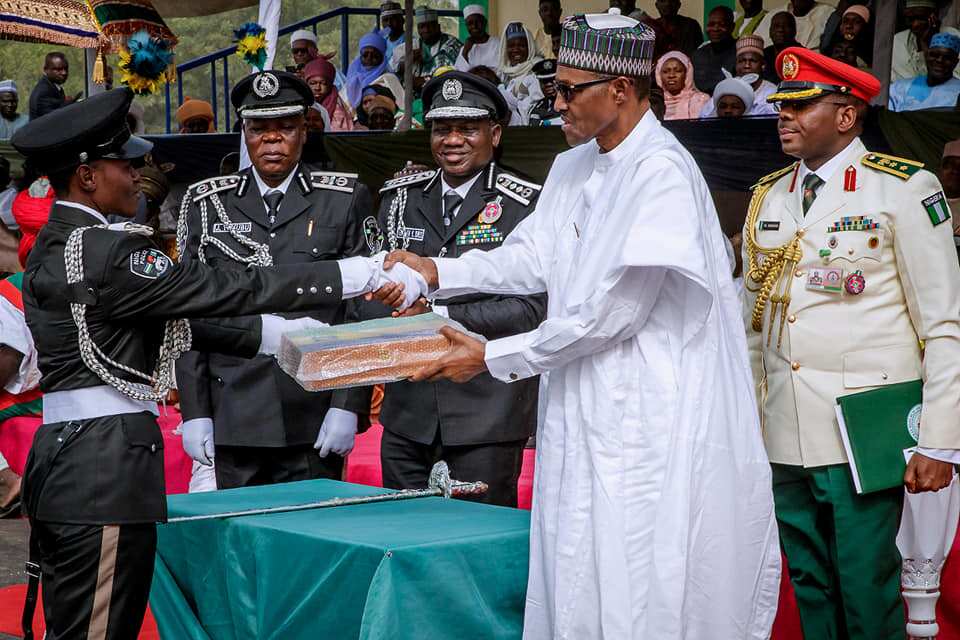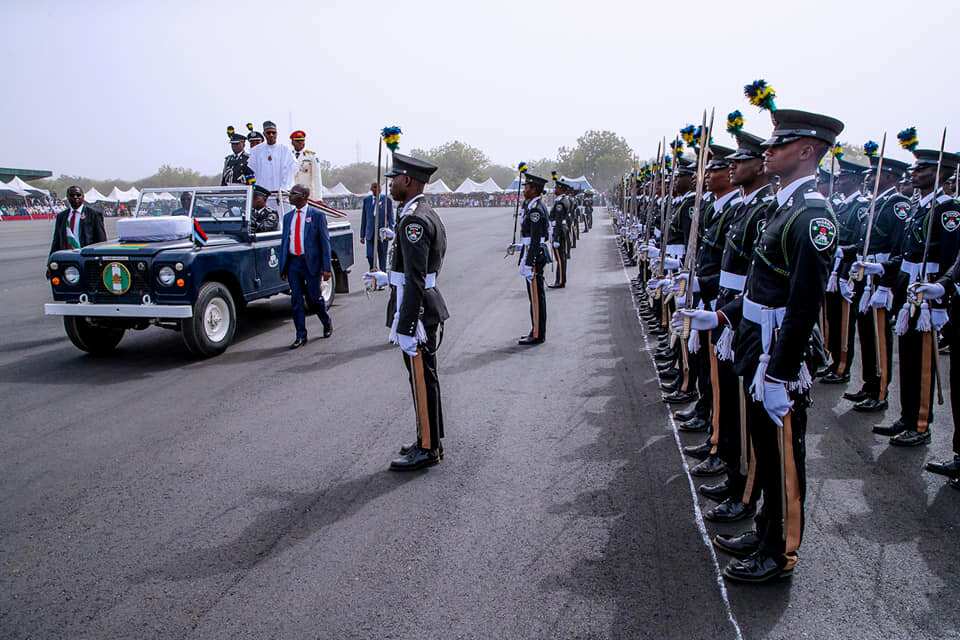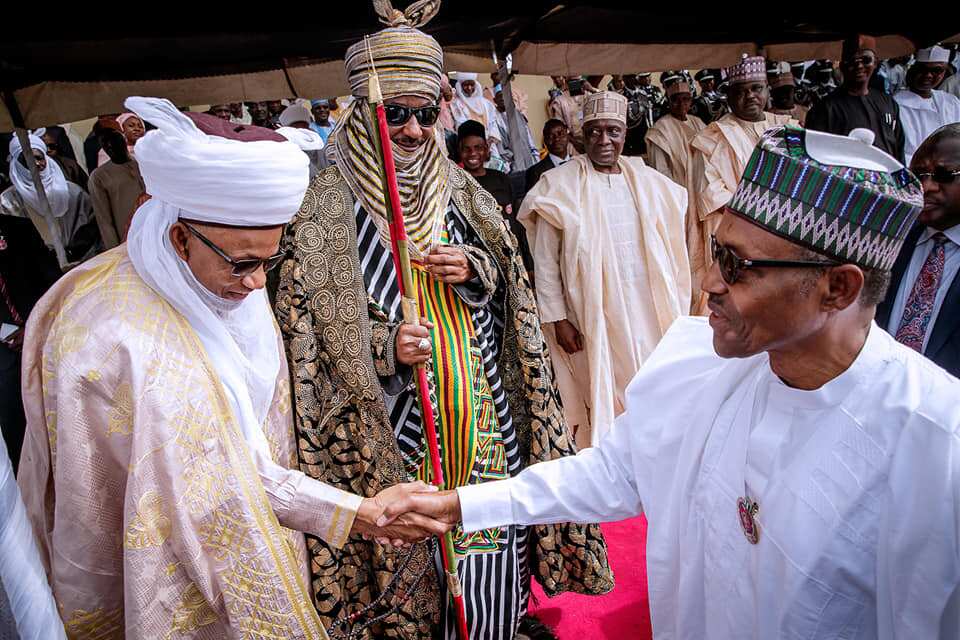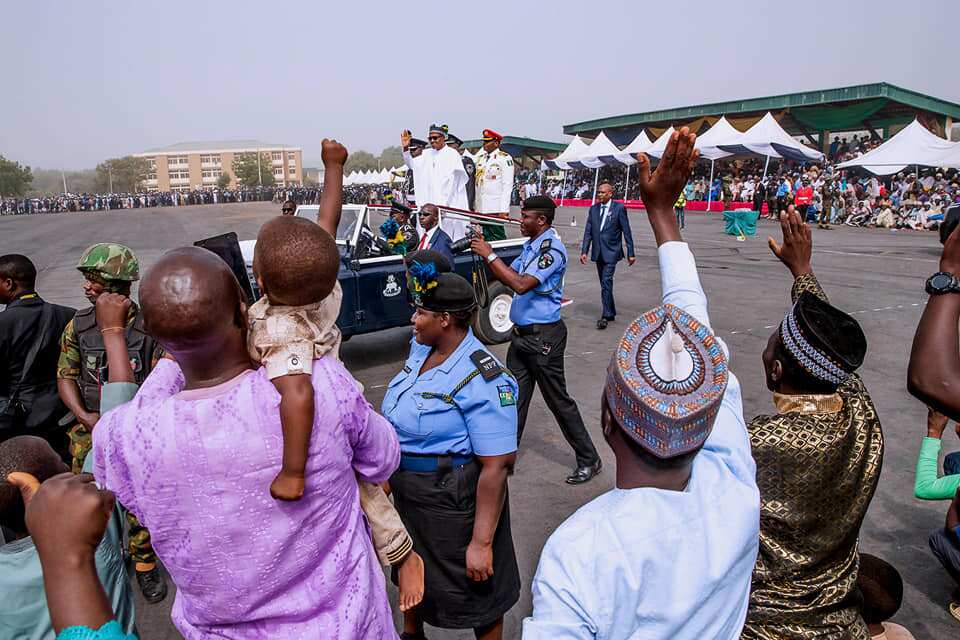- President Muhammadu Buhari has said that his administration is dedicated to ensure the total revival of the police force
- The president said this as he commissioned 602 regular police officers at the force's academy in Wudil, Kano state
- Buhari went on to say that his government is making efforts to eradicate crime in Nigeria by assisting the police
President Muhammadu Buhari on Thursday, December 20, commissioned 602 cadets of first regular course of Nigeria police academy in Wudil, Kano state.
The president who arrived the venue around 1:30, was received by a large number of people who line-up from outside the gate down to the parade ground, the News Agency of Nigeria (NAN) reports.
READ ALSO: NAIJ.com upgrades to Legit.ng: a letter from our Editor-in-Chief Bayo Olupohunda
While commissioning the cadet officers to Assistant Superintendent of Police (ASPs), President Buhari charged them to be courageous and determined in the fight against Crimes in the country.
According to the president, his administration is committed in providing adequate training and logistics o to the police aimed at ensuring a crime free society.

President Muhammadu Buhari said that he wants a society that his free from crime (Photo credit: Femi Adesina)
Source: Depositphotos
He further warned the graduating officers not to consider themselves as above the law, and should shun any form of corruption and be contented with their salary.
According to him, with the recent increase in the police salary, they have no reason to fall into temptation of financial or any other inducement.
The president added that his administration is doing everything possible to ensure their welfares. He also warned them that anyone caught violating the ethics and law of the police will be punished accordingly.

President Muhammadu Buhari on Thursday, December 20, commissioned 602 regular police officers (Photo credit: Femi Adesina)
Source: Depositphotos
Buhari therefore charged them to discharged their responsibilities through contributing to the fight against all form of insecurity in the country.

The president was given a warm welcome by the heads and people of Kano state as commissions regular police officers (Photo credit: Femi Adesina)
Source: Depositphotos
He told the officers that Nigerians are expecting them to work hard considering the training they received during their five years in school.
“Consider yourself lucky to be among the graduating officers, because it is an indication that you are fit, healthy and good to go”, the president said.

Showers of praises on President Buhari at the police officers' graduation ceremony (Photo credit: Femi Adesina)
Source: Depositphotos
Earlier in his speech, the minister of Interior, retired General Abdulrahman Dambazau, said the President’s visit shows his commitment to the ongoing reform of the police.
He commended the president for ensuring the transformation of the school to a degree awarding institution.
Dambazau further called on the president to continue to give necessary support to the academy aimed at producing courageous security officers that will contribute in curtailing the security challenges in the country.
PAY ATTENTION: Get the Latest Nigerian News Anywhere 24/7. Spend less on the Internet!
Also in his remarks, the acting coordinator of the academy, AIG Yakubu Jibril said this is the first time the school is graduating the regular course since it become a degree awarding institution.
He added that the graduation of such large number of Cadet is the first of its kind in the whole West Africa, urging them to be committed and always abide by the rule of law.
Meanwhile, Legit.ng reported that Buhari had approved Enhanced Salary Structure for the Nigeria Police Force (NPF).
The president made the declaration after meeting with members of the Police Service Commission (PSC) on Monday, November 26, at the State House, Abuja.
President Buhari met with the board of PSC, led by the Inspector General of Police Ibrahim Idris. In a series of tweets by Garba Shehu, the SSA on media and publicity, President Buhari assured that his administration will continue to give attention to the welfare and operational needs of the police with a view to restoring its lost primacy in the internal security framework of the country.
NAIJ.com (naija.ng) -> Legit.ng We have upgraded to serve you better
Nigerian Police: The challenges and progress - Benue state Commissioner of Police Fatai Owoseni - Legit TV
Source: Legit.ng
from Nigeria News today & Breaking Naija news ▷ Read on LEGIT.NG 24/7 http://bit.ly/2BBXKaT
via EDUPEDIA24/7
Comments
Post a Comment